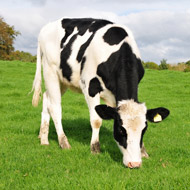Collaborative study to tackle E. coli

Cattle are a common carrier of
Shiga toxin-producing E.coli.
Shiga toxin-producing E.coli.
Researchers and farmers have joined forces to investigate what causes cattle to shed a deadly strain of E. coli.
The study, published in Applied and Environmental Microbiology, found that cows are more likely to shed Shiga toxin-producing E.coli (STEC) when under stress from hot weather and energy loss from milk production.
Scientists say the finding may lead to better prevention practices to reduce the prevalence of STEC, which cause around 90 deaths and thousands of illnesses every year in the United States.
The study looked at samples from 1,000 cattle from six dairy farms and five feedlots in Michigan. Cattle are a common carrier of STEC, and food or water contaminated with cattle faeces is a common source of E.coli infection in humans.
“Reducing STEC colonisation and shedding in cattle can decrease the likelihood of these bacterial pathogens from entering the food supply and causing food borne infections in people,” said Shannon Manning, principal investigator of the study.
“By understanding specific factors that increase the risks of STEC shedding in cattle, new management strategies, such as the isolation of high-risk animals, can be developed to limit transmission.”
Led by Michigan State University, the study involved microbiologists, epidemiologists, animal scientists, vets and farmers.
Looking ahead, the team hope to assess the diversity of different STEC strains that cattle shed and to determine the rate at which animals acquire new strains of STEC over time.



 The latest
The latest